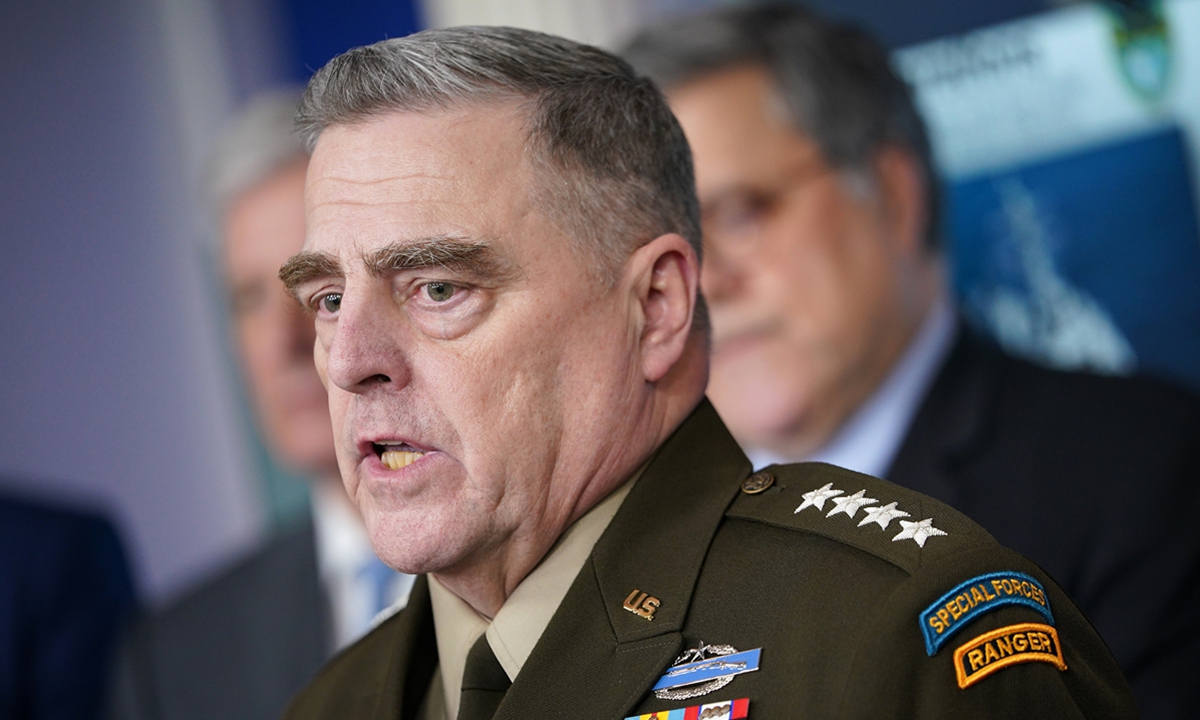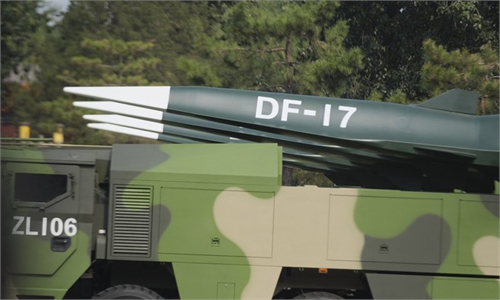
Mark Milley Photo: AFP
After hyping up that China had tested a so-called new nuclear-capable hypersonic missile for a while, ignoring the clarification from China that it was "not missile, but a spacecraft," the US military turned on the heat. On Wednesday, Gen. Mark Milley, the top US military official, described China's recent test as a near "Sputnik moment."
"Sputnik moment," a buzzword from the Cold War era at the peak of US-USSR tensions, was later identified as a point where one side perceives it is threatened and has to redouble efforts to catch up. Some also call the "Sputnik moment" a turning point in the Cold War.
Some Americans seem to be unable to open their mouth without raising Cold War language, although the Cold War ended long ago.
The goal of the Cold War metaphor is obvious - finding excuses for more investment in the US' own weapons' development. Before Milley's comment, Gregory Hayes, CEO of leading arms dealer Raytheon, said on Tuesday the US is "at least several years behind" China in developing hypersonic weapons, even though the Pentagon has a number of hypersonic weapons programs in development and the US understands the technology, according to a Bloomberg report.
According to the Stockholm International Peace Research Institute (SIPRI), US military expenditure reached $778 billion in 2020, more than the expenditure of the next 11 countries combined. "As the world's largest military spender, the US accounted for 39 percent of total military expenditure in 2020," said a SIPRI report. Still, the US cannot stop saying it is threatened.
The US is speculating about the test, Wei Dongxu, a Beijing-based military analyst, told Global Times. China is making progress in aerospace technology, yet the US is so inclined to associate them with military use, Wei said, adding the US move is, in nature, a hype of the "China threat theory."
For the US, it does not matter whether the missiles test is true. It is only determined to create a pressing sense of crisis. And the first report about it in the Financial Times, with no credible sources, was picked up as proof of the "threat," Lü Xiang, a research fellow at the Chinese Academy of Social Sciences in Beijing, told Global Times.
The US does lag behind China in terms of hypersonic technology, given its recent setbacks in relevant tests, Wei noted.
However, the comparison of the comprehensive military strength between China and the US is far from reaching a "Sputnik moment." The US, apparently, does not think so. It simply believes its all-round military advantages are not enough, and it wants absolute overwhelming superiority in military strength. It wishes for the power to enable the country to threaten whoever it wants without the slightest chance of others challenging it. It is highly likely that the US military or intelligence community fed the story to the Financial Times to hype it and seek a bigger budget. "The name US Department of Defense is not accurate; it should be called 'US Department of Offense,'" said Lü.
China has not pursued overwhelming military might, but only deterrence to protect itself. China has its own pace in building its military, and it has not at all intention to threaten US national security. It is Washington that has gone hysterical in viewing China. Granted, the US has enough nuclear weapons to destroy the planet several times over, but China has sufficient countermeasures to make its rivals fear and think twice before launching a strike against China. This is the goal of China's defense strategy that the US does not understand.
Is the US' biggest threat the imaginary Chinese missile? Washington should look in the mirror. It is the empty shelves in the markets, increasing number of strikers on the streets, poor domestic governance and incompetence to rein in the virus that is upending the superpower's foundation. If the US really confronts a "Sputnik moment," it must be an alarm that the US could be defeated by itself.

